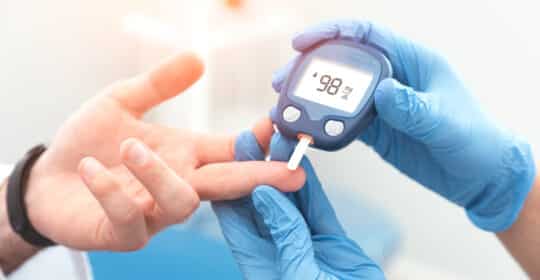
How Does Diabetes Affect Your Oral Health?
November is National Diabetes Awareness Month and if you are diabetic, now is the time to learn how diabetes affects your oral health, and what you can do to improve it through good oral hygiene. Routine dental appointments are important for everyone, but if you are a diabetic, they are imperative. Regular dental visits can help improve your blood sugar numbers. Scrupulous oral hygiene habits at home and routine professional cleanings with Dr. Angela S. Evanson, DDS can help to lower your HbA1c numbers, which helps to control your diabetes.
Diabetes is a Prevalent Disease Affecting Every Age Group
Over 37.3 million people in the United States have diabetes with 1.7 million new cases diagnosed every year and there are roughly 8.5 million people living with diabetes who haven’t been diagnosed. Diabetes affects your body’s proficiency at processing sugar and the food you eat turns to sugar. Both Type I and Type II result in high blood sugar, which causes problems with your eyes, heart, kidneys, nerves, and other areas of your body. Diabetes literally affects your whole body, including your teeth and oral health.
How Does Diabetes Affect Your Oral Health?
Diabetics usually have oral problems, such as gum disease and cavities. Controlling your blood sugar numbers will protect your gums and teeth. It works two-ways. If your gums and teeth are healthy, you’re better able to control your diabetes.
Periodontal Disease
Periodontal disease is a common dental disease that affects diabetics because poor blood sugar control boosts the risk for problems with your gums. Serious gum disease causes blood sugar numbers to rise, making diabetes hard to regulate. Diabetics are more inclined to have infections and they are less able to fight the bacteria invading the gums.
Gingivitis
Gingivitis is the first stage of gum disease. High blood sugar levels supply sugars and starches in your mouth, resulting in more acid that erodes your tooth enamel. Diabetes diminishes your ability to fight bacteria and over time, your gums become swollen and bleed easily. Uncontrolled diabetes equals more sugar in your saliva, and increases the cavity causing bacteria. Keeping your blood sugar numbers lower, brushing and flossing daily and using an antibacterial mouthwash, will help prevent most gum and tooth disease before it has a chance to “take root”.
Periodontitis
If untreated, gingivitis can turn into a more serious type of gum disease, periodontitis. Periodontitis erodes the tissues and bones that sustain your teeth. This condition readily leads to tooth loss. Poor oral care habits, such as brushing and flossing on a regular basis, allows plaque and bacteria to build up on your teeth. This will cause your gums to pull away from your teeth, creating pockets where bacteria attack your gums, mouth, and bones. Periodontitis can’t be reversed, but Dr. Evanson can provide special treatment or oral surgery, if your gums and teeth have reached this point.
Tips For Diabetics
Diabetes affects the production of saliva, putting you at risk for dry mouth. Saliva produces enzymes that attack bacteria and without it present, bacteria can grow out of control.
- Stay hydrated and avoid caffeine, alcohol, and smoking, which have a dehydrating effect.
- Use sugar free gum or sugarless candies to promote saliva production.
- Limit acidic drinks such as soda, energy drinks, and citrus juice. These products erode your tooth enamel.
- Brush your teeth twice each day, and floss at least once a day.
- Make an appointment to see Dr. Evanson by calling (720) 409-0008 or contact us online.
Dr. Evanson will work with you to help for the benefit of your oral health and your diabetes.
Leave a reply →






